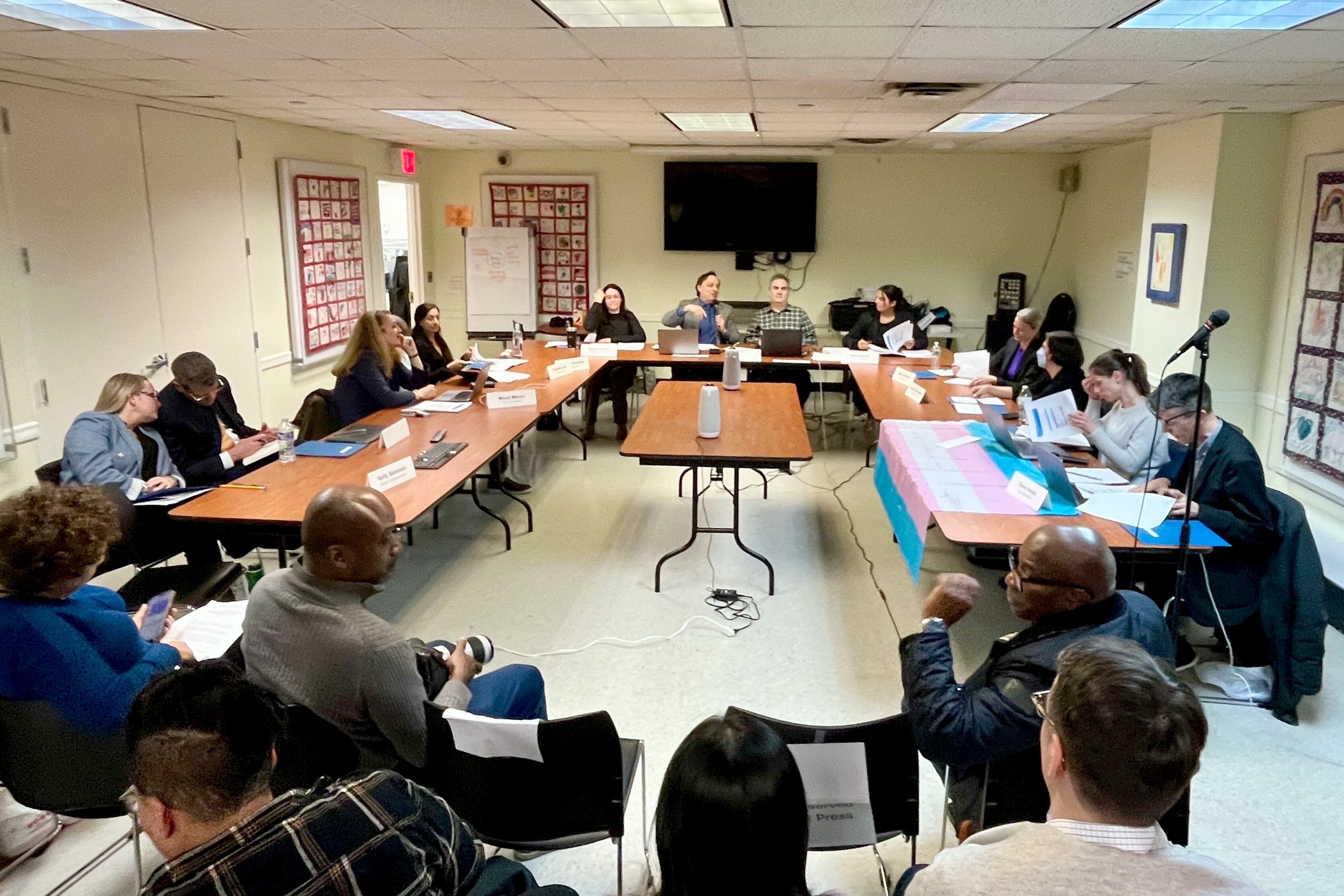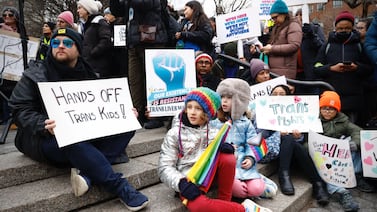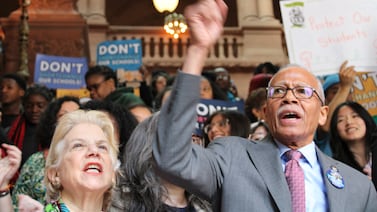Sign up for Chalkbeat New York’s free daily newsletter to keep up with NYC’s public schools.
A New York City comptroller investigation raised serious concerns about how the Education Department handled the 2023 Community Education Council elections, according to findings Comptroller Brad Lander sent this week to schools Chancellor Melissa Aviles-Ramos.
Lander called on the Education Department to implement a host of changes before this spring’s voting cycle, including an outreach plan for every district published several months prior to launching the ballots, developing a clear set of criteria on what constitutes a “political endorsement,” and strengthening a process to handle complaints during the elections.
Every two years, New York City public school parents cast ballots for representatives on Community Education Councils, parent-led boards for the 32 local districts that oversee school zones and other policy issues along with four citywide councils. Many observers said election outreach and turnout have been dismal: Roughly 19,000 votes were cast across the five boroughs in 2023, according to Education Department figures. That’s about 2% of the city’s public school families.
Two citywide parent groups had called on the comptroller to audit how the Education Department’s Office of Family and Community Empowerment, known as FACE, ran the elections, saying they “were not carried out with fidelity, integrity, transparency and equity.” A 2023 Chalkbeat investigation highlighted numerous concerns in how FACE conducted the election process. In interviews with more than 20 current and former FACE staffers, election campaign contractors, and parent leaders along with reviews of documents and emails, Chalkbeat uncovered how FACE was gripped internally by turmoil and factions, potentially affecting the election process.
There’s an “urgent need for improved clarity, better and consistent complaint handling processes, and transparency,” Lander wrote in the Nov. 21 letter obtained by Chalkbeat.
Despite the concerns over FACE’s handling of the elections, FACE’s executive director Cristina Melendez — who took over in January 2022 after serving as a lead on the education transition team for Mayor Eric Adams — is expected to be elevated to the deputy chancellor role overseeing family engagement, Politico reported this week.
The Education Department did not respond to questions about Melendez. She did not immediately respond for comment.
“New York City Public Schools takes concerns about the elections seriously, and all reports were investigated and considered in accordance with applicable law and regulations,” Education Department spokesperson Chyann Tull said in an email. “We are reviewing our processes as we look towards the next citywide and community education council election season and will review the comptroller’s recommendations.”
Criticism over city’s handling of PLACE endorsements
Candidates endorsed by one group in particular made significant inroads on the councils: Parent Leaders for Accelerated Curriculum and Education NYC, or PLACE, which advocates to maintain and expand screened school admissions. The group’s picks won nearly 40% of the roughly 320 seats on the parent councils and captured all of the seats up for election on the high school council, one of the four citywide boards.
But Lander said that FACE mishandled its response to PLACE’s endorsements.
FACE did not consider PLACE endorsements as political, the letter explained, unlike endorsements made by another group, NYC Kids PAC, which tends to support integration and other progressive policies. Because Kids PAC is registered as a political action committee, FACE treated its picks as “political endorsements” and even disqualified one candidate because of her promotion of the endorsement. Treating the groups’ endorsements differently, however, was erroneous, the letter said: PLACE behaved like a political organization, its endorsements were political in nature, and it influenced the elections for a political purpose.
“FACE did not apply the Chancellor’s Regulations consistently or fairly when adjudicating candidate complaints,” Lander wrote.
NeQuan McLean, a parent leader from Brooklyn’s Bedford-Stuyvesant and president of the board of directors for the Education Council Consortium, one of the groups that brought the complaints to the comptroller, was unsurprised by the findings.
“It’s what we said it was: It was an unfair implementation of the rules and regulations,” he said. “Hopefully the DOE will take these recommendations seriously.”
Having “true and transparent” elections so parent councils “can be more reflective of the communities that they serve” will be especially important after President Donald Trump takes office, McLean said, since states and local bodies might have more say over education policy.
Lisa Marks, co-president of PLACE, said her organization was never contacted by the comptroller’s office and was unaware of the investigation.
“PLACE NYC is a volunteer parent organization that advocates for high quality, rigorous education in NYC public schools,” she wrote in an email. “We help and support fellow parents who believe in our mission, to hold seats on all relevant parent councils.” That includes PTAs, school leadership teams, and Community Education Councils, she said.
More outreach needed for Community Education Council elections
Other issues included improper ballot placement for candidates representing District 75 (which serves students with disabilities that have complex needs) as well as concerns about low participation at Bronx high schools, raising questions about the outreach to those communities.
Parents at only nine out of the Bronx’s 153 high schools voted for high school representatives on the Citywide Council on High Schools, according to the parent groups who called for the audit.
The 2023 election was just the second time that parents could vote directly for their school board representatives. (Previously, parent association leaders selected members.) The first time the voting system changed was during the pandemic, so low turnout was unexpected. But turnout remained low in 2023 as well.
“It seems likely that Department of Education (DOE) processes did not keep pace with what was needed for this expansion to a Citywide election involving hundreds of thousands of potential voters,” Lander wrote.
He is calling for FACE to have district outreach plans, which should outline budget and other resources, ready to implement at least three months before voting begins.
This year’s election cycle will kick off in January, when parents will be able to apply for seats. Campaigning will last from late February through April. Voting — which can be done online through a parent or guardian’s New York City Schools Account, or NYCSA — will take place from late April through May 13, according to the Education Department’s website.
This week, FACE began reaching out to parent leaders about participating in a working group to discuss how to improve the election process, according to a letter obtained by Chalkbeat. The working group aims to develop plans to reach underrepresented communities and encourage higher participation. Meetings are expected to start Dec. 11.
Amy Zimmer is the bureau chief for Chalkbeat New York. Contact Amy at azimmer@chalkbeat.org.







